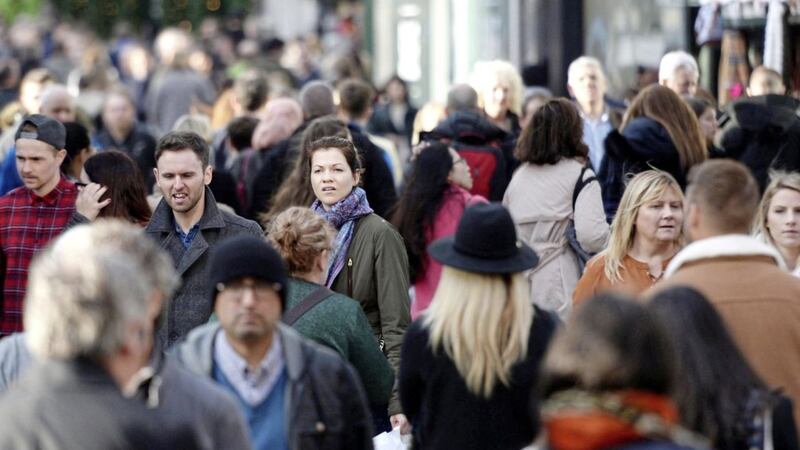Net migration to the UK has fallen to the lowest level for three years after a surge in the number of EU nationals leaving the country.
Official estimates show the overall measure, the difference between arrivals and departures, was at 246,000 in the year to the end of March, a fall of 81,000 compared with the previous 12 months.
Statisticians reported much of the change was driven by an increase in emigration, mainly among EU citizens, sparking claims of a "Brexodus".
The number of EU nationals leaving the UK increased by 33,000 year-on-year to 122,000, the highest outflow for nearly a decade.
There was a particularly sharp rise, of 17,000, in departures of migrants from the so-called EU8 countries which joined the union in 2004, Czech Republic, Estonia, Hungary, Latvia, Lithuania, Poland, Slovakia and Slovenia.
There was also a 19,000 fall in the numbers arriving from the EU, although this was not "statistically significant".
Total EU net migration was estimated at 127,000, a dip of 51,000 on the previous 12 months.
The figure for migration from the rest of the world was also down, by 14,000, to 179,000.
According to the latest statistics for Norther Ireland, in the 12 months ending mid-2016 there were 23,800 migrants. The figures showed that 22,300 people left – leading to a net increase of 1,500 people.
Nicola White, head of international migration statistics at the Office for National Statistics, said: "These results are similar to 2016 estimates and indicate that the EU referendum result may be influencing people's decision to migrate into and out of the UK, particularly EU and EU8 citizens.
"It is too early to tell if this is an indication of a long-term trend."
Liberal Democrat leader Sir Vince Cable said the figures show a "deeply worrying Brexodus", while Labour leader Jeremy Corbyn warned the NHS was facing recruitment problems due to a lack of EU workers.
Jonathan Portes, professor of economics and public policy at King's College London, said the statistics "confirm that Brexit is having a significant impact on migration flows, even before we have left the EU or any changes are made to law or policy".
Madeleine Sumption, director of the Migration Observatory at the University of Oxford said: "The recent fall in Eastern European net migration is smaller than the declines we would expect if free movement is abolished, so is really just a taste of what is likely to come next."
Net long-term migration estimates reflect the balance between the numbers coming to the country or leaving for at least 12 months.
The overall figure of 246,000 is the lowest since the year ending March 2014.
Lord Green of Deddington, chairman of Migration Watch UK, said: "This is a step forward but it is largely good fortune.
"This should not obscure the fact that migration remains at an unacceptable level of a quarter of a million a year with massive implications for the scale and nature of our society."
Immigration minister Brandon Lewis said: "The fall in net migration, for the third quarter in succession, is encouraging but we are not complacent.
"People who come to our country to work bring significant benefits to the UK, but there is no consent for uncontrolled immigration."
Separate Home Office figures showed a huge post-referendum rise in the number of documents issued to EU nationals certifying their right to live in the UK permanently, with more than 130,000 handed out in the year to the end of June.
Meanwhile, population data for 2016 revealed that the number of Polish nationals living in the UK has passed the one million mark for the first time.
Another dataset showed that more than a quarter (28.2 per cent) of births in England and Wales in 2016 were to women born outside the UK, the highest level on record.
Brent in north-west London was the local authority area with the highest percentage of births to non-UK-born women, at 76 per cent.








